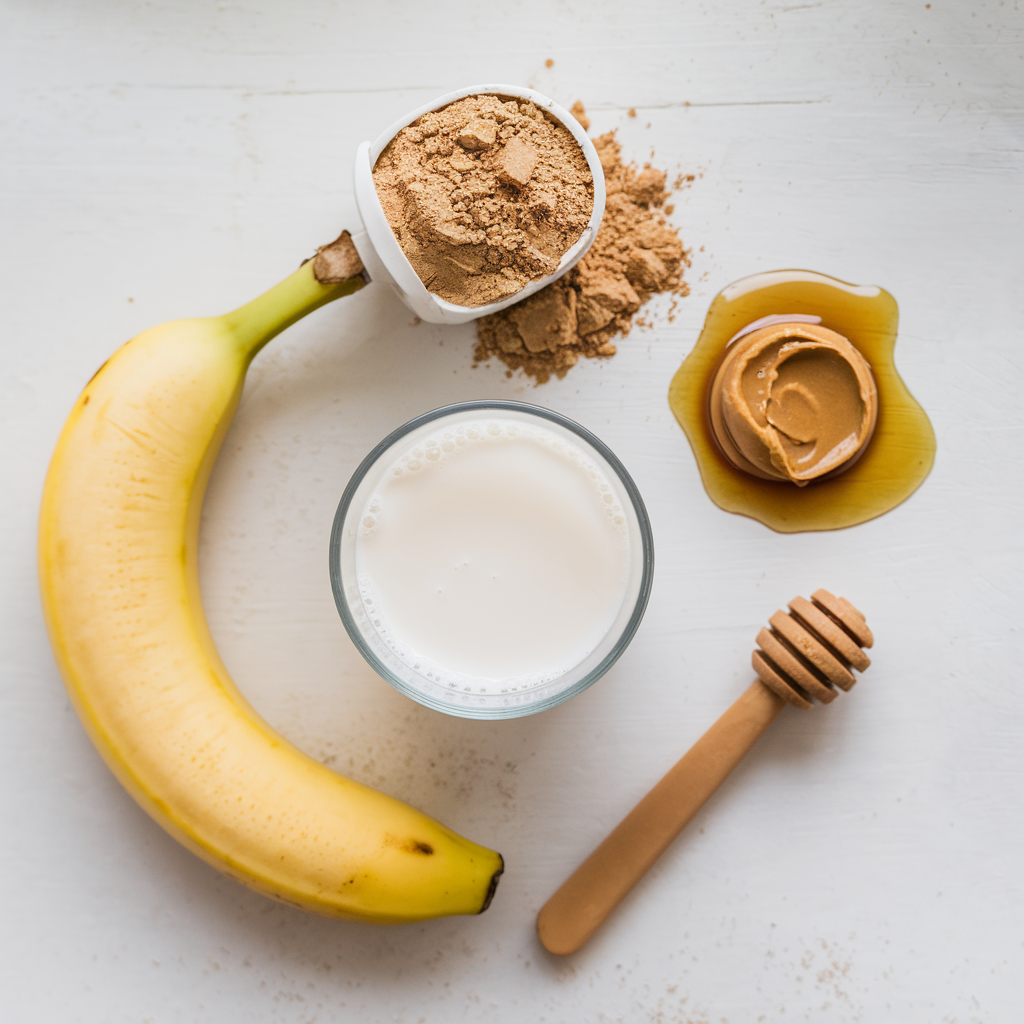Protein drinks have become a staple in the fitness world and beyond. Whether you’re an athlete, a fitness enthusiast, or someone simply trying to increase their protein intake, protein drinks can be a convenient and effective way to achieve your nutritional goals. This comprehensive guide will walk you through everything you need to know about protein drinks, from their benefits and types to how to choose the right one for you.
Introduction to Protein Drinks

Protein drinks have gained immense popularity over the years, and for good reason. These drinks offer a quick and easy way to consume protein, which is essential for muscle growth, repair, and overall health. With various types available, from whey to plant-based options, there’s a protein drink for everyone.
The Importance of Protein in Your Diet
Protein is one of the three macronutrients, along with carbohydrates and fats, that are essential for the body to function correctly. It plays a critical role in building and repairing tissues, making enzymes and hormones, and supporting overall health. For those who engage in regular physical activity, protein becomes even more crucial as it aids in muscle recovery and growth.
Why Protein Matters:
- Muscle Growth and Repair: After a workout, your muscles need protein to repair and grow stronger. Protein drinks can provide the necessary amino acids that your body requires during this recovery phase.
- Weight Management: Protein can help you feel full longer, which may aid in weight management. Consuming a protein drink as part of your diet can help curb hunger and reduce overall calorie intake.
- General Health: Beyond muscle health, protein is vital for maintaining a healthy immune system, producing enzymes, and supporting various bodily functions.
Types of Protein Drinks
Protein drinks come in various forms, each with its own set of benefits. The type of protein you choose can depend on your dietary preferences, fitness goals, and any food allergies or sensitivities you may have.
Whey Protein Drinks
Whey protein is one of the most popular types of protein, especially among athletes and bodybuilders. Derived from milk, whey protein is a complete protein, meaning it contains all nine essential amino acids. It’s quickly absorbed by the body, making it an excellent post-workout option.
Benefits of Whey Protein:
- Fast Absorption: Whey protein is rapidly digested and absorbed, making it ideal for post-exercise recovery.
- High Biological Value: Whey protein has a high biological value, meaning it’s highly efficient in promoting muscle protein synthesis.
- Versatile: Whey protein can be mixed with water, milk, or added to smoothies and other recipes.
Casein Protein Drinks
Casein is another milk-derived protein, but unlike whey, it is absorbed slowly by the body. This makes casein an excellent option for a bedtime protein drink, as it provides a steady release of amino acids throughout the night.
Benefits of Casein Protein:
- Slow Release: The slow digestion of casein provides a prolonged supply of protein, which can be beneficial for muscle recovery over a more extended period.
- Ideal for Nighttime: Consuming casein before bed can help prevent muscle breakdown while you sleep.
- Rich in Calcium: Casein is also a good source of calcium, which is essential for bone health.
Plant-Based Protein Drinks
For those who follow a vegetarian or vegan diet, plant-based protein drinks are an excellent alternative. Common sources of plant-based proteins include soy, pea, rice, and hemp. These proteins are generally lower in certain amino acids compared to animal-based proteins, but they can still be effective for muscle growth and recovery.
Benefits of Plant-Based Proteins:
- Allergy-Friendly: Plant-based proteins are lactose-free and suitable for those with dairy allergies or intolerances.
- Environmentally Friendly: Plant-based proteins typically have a lower environmental impact compared to animal-based proteins.
- Rich in Nutrients: Many plant-based proteins are rich in fiber, vitamins, and minerals, offering additional health benefits.
How to Choose the Right Protein Drink for You
Choosing the right protein drink depends on several factors, including your dietary needs, fitness goals, and taste preferences. Here are some key considerations to help you make the best choice.
Consider Your Dietary Restrictions
If you’re lactose intolerant, allergic to dairy, or follow a vegan diet, plant-based protein drinks will be the best option for you. However, if you don’t have any dietary restrictions, whey protein might be the most effective for muscle recovery due to its fast absorption.
Evaluate Your Fitness Goals
Your fitness goals can significantly influence the type of protein drink you choose. For example, if your primary goal is to build muscle, a whey protein drink consumed post-workout might be ideal. On the other hand, if you’re looking to maintain muscle mass overnight, a casein protein drink before bed could be more beneficial.
Taste and Texture Preferences
Taste and texture can make or break your protein drink experience. Some people prefer the creamy texture of casein, while others may like the lighter feel of whey protein. Many brands offer flavored options, but you should be mindful of added sugars and artificial ingredients.
How to Make Your Own Protein Drink
Making your own protein drink at home can be a great way to control the ingredients and customize the flavor to your liking. Here’s a simple recipe to get you started.
Ingredients:
- 1 scoop of protein powder (whey, casein, or plant-based)
- 1 cup of milk (or almond milk for a dairy-free option)
- 1 banana
- 1 tablespoon of peanut butter
- 1 tablespoon of honey
- Ice cubes
Instructions:
- Place all ingredients in a blender.
- Blend until smooth.
- Pour into a glass and enjoy immediately.
Benefits of Protein Drinks Beyond Fitness
While protein drinks are often associated with muscle building and fitness, they offer several other benefits that can enhance your overall health.
Weight Management
can be an effective tool for weight management. By promoting a feeling of fullness, they can help reduce overall calorie intake. Incorporating a protein drink into your diet can help prevent overeating and support weight loss efforts.
Convenience
One of the biggest advantages of protein drinks is their convenience. Whether you’re on the go, at work, or just need a quick snack, a protein drink can be a fast and easy way to ensure you’re getting enough protein throughout the day.
Nutrient-Rich
Many protein drinks are fortified with additional vitamins and minerals, making them not only a source of protein but also a nutrient-dense option for improving your overall diet.
Potential Drawbacks of Protein Drinks
While have many benefits, it’s important to be aware of potential drawbacks as well.
Added Sugars and Artificial Ingredients
Some commercial protein drinks contain added sugars and artificial ingredients that can detract from their health benefits. Always check the ingredient label and opt for drinks with minimal additives.
Overconsumption
It’s possible to consume too much protein, which can strain your kidneys and lead to other health issues. It’s important to balance protein drinks with a well-rounded diet.
Pairing Protein Drinks with Other Foods
Pairing your protein drink with other foods can enhance its nutritional profile and keep you fuller for longer. Here are some suggestions:
- Fruit: Adding fruit to your protein drink can boost your intake of vitamins, minerals, and fiber.
- Nuts and Seeds: These add healthy fats and additional protein to your drink.
- Oats: For a more substantial meal, consider blending oats into your protein drink for added fiber and complex carbohydrates.
The Science Behind Protein Absorption
Understanding how protein is absorbed can help you make more informed choices about when and what type of protein drinks to consume.
Fast vs. Slow-Absorbing Proteins
Whey protein is absorbed quickly, making it ideal for post-workout recovery when your muscles are most receptive to nutrients. On the other hand, casein protein is absorbed slowly, providing a steady supply of amino acids over several hours, which can help prevent muscle breakdown during periods of fasting, such as overnight.
The Role of Protein Drinks in Different Diets
can be tailored to fit a variety of diets, whether you’re following a low-carb, keto, or plant-based regimen.
Low-Carb and Keto Diets
For those following a low-carb or keto diet, can be an excellent way to meet your protein needs without adding too many carbs. Many protein powders are low in carbohydrates and can be mixed with water or unsweetened almond milk to keep the carb content low.
Plant-Based Diets
Plant-based protein drinks are ideal for those who follow a vegetarian or vegan diet. They can help ensure you’re getting enough protein, which can sometimes be challenging with plant-based diets alone.
Common Myths About Protein Drinks
There are several myths surrounding protein drinks that can cause confusion. Let’s debunk some of the most common ones.
Myth 1: Protein Drinks Are Only for Bodybuilders
While are popular among bodybuilders, they are beneficial for anyone looking to increase their protein intake. Whether you’re an athlete, trying to lose weight, or simply want to ensure you’re getting enough protein, these drinks can be a valuable addition to your diet.
Myth 2: All Protein Drinks Are the Same
Not all protein drinks are created equal. The type of protein, quality of ingredients, and additional nutrients can vary significantly between brands. It’s important to read labels and choose a protein drink that aligns with your health goals.
Storing Protein Drinks
Proper storage of protein drinks is essential to maintain their freshness and nutritional value.
Ready-to-Drink Protein Shakes
If you’ve purchased ready-to-drink protein shakes, these should be stored in a cool, dry place. Once opened, they should be refrigerated and consumed within a few days.
Protein Powders
Protein powders should be stored in a cool, dry place and kept tightly sealed to prevent moisture from getting in. Proper storage will help extend the shelf life of your protein powder.
FAQs About Protein Drinks
Can I Replace Meals with Protein Drinks?
While can be used as a meal replacement, it’s important to ensure they are balanced with adequate carbohydrates, fats, and micronutrients. If you’re using a protein drink as a meal replacement, consider adding fruits, nuts, or oats to make it more substantial.
How Much Protein Should I Consume Daily?
The recommended daily intake of protein varies depending on your activity level, age, and health goals. Generally, 0.8 to 1 gram of protein per kilogram of body weight is sufficient for most people. However, athletes and those engaged in heavy physical activity may require more.
Are Protein Drinks Safe for Everyone?
Most people can safely consume protein drinks, but it’s essential to consider any dietary restrictions or allergies. If you have a medical condition or are pregnant, it’s best to consult with a healthcare provider before adding protein drinks to your diet.
Conclusion
Protein drinks are a versatile and convenient way to increase your protein intake, support muscle growth, and enhance overall health. By understanding the different types of protein, how they work in your body, and how to choose the right one for your needs, you can make the most out of your protein drink experience. Remember to balance your intake with whole foods and be mindful of the ingredients to ensure you’re getting the best possible nutrition from your protein drinks.


